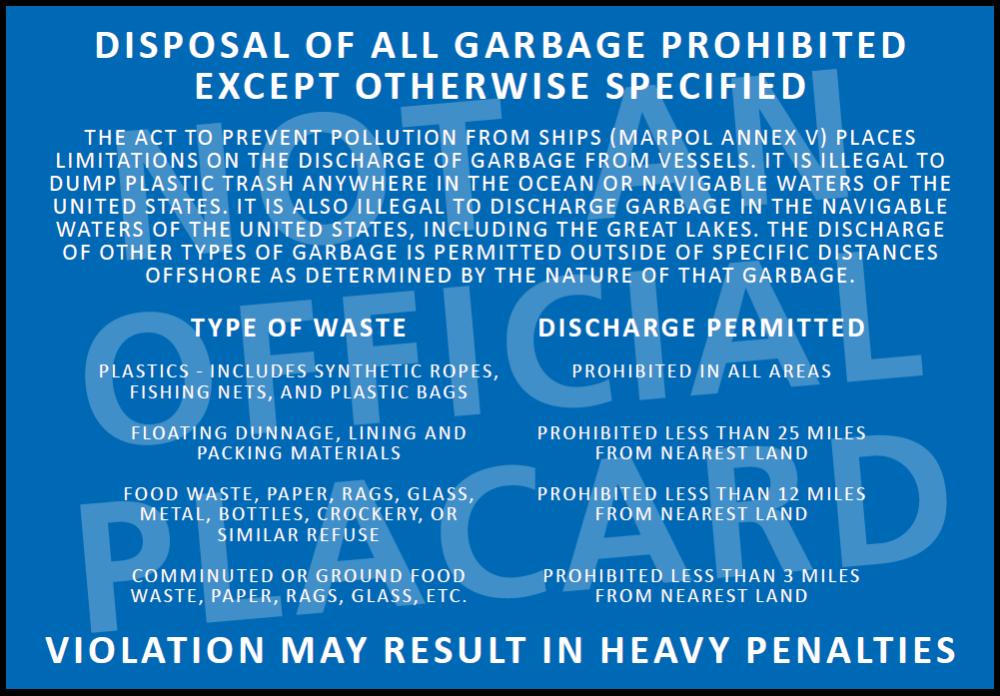Required by the USCG in a language all passengers understand. These are installed at the factory. Placards should be replaced promptly if damaged or missing. This page should not be used in substitution of installed placards onboard. Text should cover approximately the following:
Garbage Disposal
*DISPOSAL OF ALL GARBAGE PROHIBITED EXCEPT OTHERWISE SPECIFIED
The act to prevent pollution from ships (MARPOL Annex V) places limitations on the discharge of garbage from vessels. It is illegal to dump plastic trash anywhere in the ocean or navigable waters of the United States. it is also illegal to discharge garbage in the navigable waters of the United States, including the Great Lakes. The discharge of other types of garbage is permitted outside of specific distances offshore as determined by the nature of that garbage. Violation may result in heavy penalties.
| Type of Waste |
Discharge Permitted |
| Plastics – includes synthetic ropes, fishing nets, and plastic bags |
Prohibited in all areas |
| Floating dunnage, lining and packing materials |
Prohibited less than 25 miles from nearest land |
| Food waste, paper, rags, glass, metal, bottles, crockery, or similar refuse |
Prohibited less than 12 miles from nearest land |
| Comminuted or ground food waste, paper, rags, glass, etc. |
Prohibited less than 3 miles from nearest land |
Oil Overboard
!DISCHARGE OF OIL PROHIBITED
The Federal Water Pollution Control Act Prohibits the discharge of oil or oily waste into or upon the navigable waters of the United States, or the waters of the Contiguous Zone, or which may affect natural resources belonging to, appertaining to, or under the exclusive management authority of the United States. If such discharge causes a film or discoloration of the surface of the water or causes a sludge or emulsion beneath the surface of the water, violators are subject to substantial civil penalties and/or criminal sanctions including fines and imprisonment.
![]()
![]()





